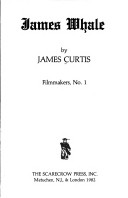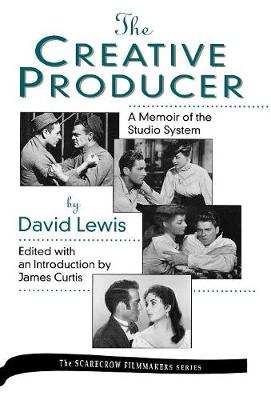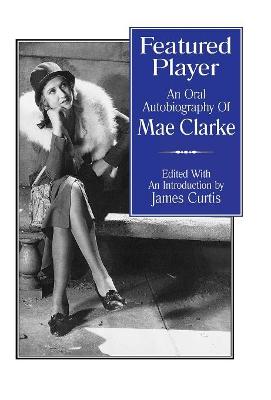The Scarecrow Filmmakers
1 primary work • 3 total works
Book 1
James Whale directed some of the most stylish and unusual movies of the 1930s but he was most successful in a genre he virtually invented. For it was Whale who, in 1931, took a lanky, middle-aged actor and sometime truck-driver named Boris Karloff and cast him as the tragic, patchwork creature of the original Frankenstein. But Whale's success was short-lived. His career faltered and, being openly gay, he found work increasingly hard to get. He quit just ten years after the triumph of Frankenstein, and died a suicide only months before the film's eventual release on television. James Curtis has written the definitive account of the life of this innovative and stylish director.
In 1938, Warner Brothers production chief Hal Wallis grudgingly described David Lewis—one of his six "supervisors" and a veteran of 15 feature films—to director Michael Curtiz: "That Lewis is a genius at getting scripts out of people who can't write!" Wallis knew that writing ultimately defined the job of the creative producer and that David Lewis had an uncanny talent for coaxing the best filmic material from the screenwriters he supervised. In this memoir, Lewis describes his development as a production executive and how the associate producer helped make the famed studio system work. It was the producer (or "supervisor", at Warners) who saw the script budgeted, cast the film, helped choose the director, and gently influenced the filming itself. Once shooting was complete, it was the producer who stayed with the project through editing and previews. David Lewis (1903-1987) was an associate producer at RKO and later at MGM. He hit his stride at Warner Bros., where, between 1937 and 1942, he produced twelve films with such popular stars as James Cagney (Each Dawn I Die), Humphrey Bogart (It All Came True), Bette Davis (Dark Victory), Ronald Reagan (Kings Row), Errol Flynn (Four's a Crowd), and Charles Boyer (All This and Heaven Too). His films were nominated for a total of 15 Academy Awards, including three for Best Picture. Some of Lewis's films have rightfully become classics; all reflect an unerring instinct for character and structure, part of the filmmaking process he describes in The Creative Producer.
To the American public, she will always be remembered as the woman who had a grapefruit ground into her face by James Cagney in the 1931 film classic Public Enemy. In fact, in an acting career that spanned nearly four decades, Mae Clarke appeared in nearly 100 feature films and logged in nearly as many television appearances. During the two years before she died at the age of 82, Mae Clarke spent many hours reliving those years. In a series of candid and often poignant interviews, she talks about her years in Hollywood, her failed marriage, and her health problems.


